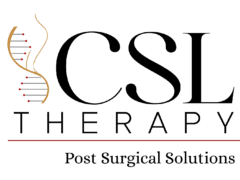Regulation Number: CSL-RGB-010. Conflict of Interest.
010.1. Definition of Conflict of Interest:
- A conflict of interest exists when a certificant or licensee has a personal, financial, or professional interest that could influence, or reasonably appear to influence, the impartial and objective provision of CSL Therapy treatments.
010.2. Disclosure Obligation:
- Certificants and licensees shall proactively identify and disclose any potential or actual conflicts of interest to CSL Therapy, clients, and relevant stakeholders in a timely and transparent manner.
010.3. Examples of Conflicts of Interest:
- Certificants and licensees shall be aware of various scenarios that may lead to conflicts of interest, including but not limited to financial investments, personal relationships, referrals, or dual roles with clients.
010.4. Client’s Best Interests:
- Certificants and licensees shall always prioritize the best interests of the client when a conflict of interest arises, ensuring that client care is not compromised.
010.5. Informed Consent:
- When a conflict of interest is identified, certificants and licensees shall obtain informed consent from the client, clearly explaining the nature of the conflict and its potential impact on the client’s treatment.
010.6. Dual Roles:
- Certificants and licensees shall avoid dual roles with clients whenever possible. If dual roles are unavoidable, they shall take measures to minimize conflicts of interest and protect client welfare.
010.7. Financial Relationships:
- Certificants and licensees shall disclose any financial relationships or interests, including investments, partnerships, or affiliations, that could reasonably be perceived as a conflict of interest. AST applicants shall avoid entering into teaching and educational positions driven by profits over purpose and efficacy. Trainers shall only provide courses they are qualified tot each and not start teaching courses simply because they are profitable without meeting all necessary requirements for providing body altering continuing educational resources.
010.8. Referrals and Recommendations:
- Certificants and licensees shall provide referrals and recommendations to clients based on the client’s best interests and needs, rather than personal gain or benefit.
010.9. Transparency and Documentation:
- Certificants and licensees shall maintain transparency in all dealings related to conflicts of interest and shall document all disclosures and actions taken to manage conflicts.
010.10. Recusal:
- Certificants and licensees shall recuse themselves from any decision-making or actions that may be influenced by a conflict of interest and shall delegate responsibilities to an impartial party when necessary.
010.11. Regular Training:
- Certificants and licensees shall undergo regular training and education on conflict of interest awareness and management to enhance their understanding and compliance.
010.12 Continuing Education & Advanced Scholastic Training:
- Educational providers, teachers, and trainers in the Body Altering Aesthetics industry shall avoid conflicts of interest while providing educational resources to other healthcare providers. This includes not teaching before 6 months of completing a CSL Therapy accredited foundational course.
Failure to comply with this Patient Privacy/Confidentiality & Public safety regulation may result in disciplinary actions by CSL Therapy, including but not limited to certification or licensure suspension or revocation, dismissal fines, and incarceration in accordance with CSL Therapy’s disciplinary policies and procedures.
This regulation shall be effective as of [September 18, 2023] and shall remain in effect until revised or updated by CSL Therapy.



